DSIP
Synonym(s):DSIP;Emideltide;Sleep inducing peptide;Trp-Ala-Gly-Gly-Asp-Ala-Ser-Gly-Glu
- CAS NO.:62568-57-4
- Empirical Formula: C35H48N10O15
- Molecular Weight: 848.82
- MDL number: MFCD00076883
- EINECS: 211-519-9
- SAFETY DATA SHEET (SDS)
- Update Date: 2024-12-10 18:54:13

What is DSIP?
Description
Delta-sleep-inducing peptide (DSIP) is a neuropeptide with amino acid sequence Trp-Ala-Gly-Gly-Asp-Ala-Ser-Gly-Glu and molecular mass 848.81 g/mol. DSIP occurs in both free and bound forms in the hypothalamus, limbic system and pituitary as well as various peripheral organs, tissues and body fluids. In the pituitary it co-localises with many peptide and non-peptide mediators such as corticotropin-like intermediate peptide (CLIP), adrenocorticotrophic hormone (ACTH), melanocyte-stimulating hormone (MSH), thyroid-stimulating hormone (TSH) and melanin concentrating hormone (MCH). Delta-sleep-inducing peptide is abundant in the gut secretory cells and in the pancreas where it co-localises with glucagon.
Description
DSIP is the abbreviation for delta sleep-inducing peptide. It is a nonapeptide with the amino acid sequence Тrр-Аlа-Gly-Gly-Asp-Ala-Ser-Gly-Glu. In 1964, M. Monnier and L. H?sli reported that DSIP enhanced delta (slow-wave) electroencephalogram patterns in rabbits—hence its name. However, it is the subject of much controversy because it has not been associated with a gene, and it may not exist in nature except under artificially induced conditions.
The Uses of DSIP
Delta-sleep-inducing peptide (DSIP) was isolated, characterized, and synthesized more than 6 years ago. It can help relieve stress and aches that keep you from restful sleep. It was first proposed as a sleep-peptide and this remains the prevalent impression of its function. DSIP is a natural sleep-promoting nonapeptide with a few beneficial functions. The peptide has been used to treat poor sleep, pain conditions, stress-related symptoms, and more. Delta-Sleep Inducing Peptide trifluoroacetate salt H-Trp-Ala-Gly-Gly-Asp-Ala-Ser-Gly-Glu-OH trifluoroacetate salt is a useful research chemical compound.
The Uses of DSIP
DSIP is thought to increase sleep regulation, reduce motor activity to improve deep sleep, stimulate ACTH and LH levels, and reportedly normalize blood pressure. DSIP can change the serum level of some hormones, such as adrenocorticotropic hormone, somatostatin, serotonin, etc.
Definition
Emideltide or DSIP is a nonapeptide that is found in neurons, peripheral organs, and plasma. This neuropeptide induces mainly delta sleep in mammals. In addition to sleep, the peptide has been observed to affect electrophysiological activity, neurotransmitter levels in the brain, circadian and locomotor patterns, hormonal levels, psychological performance, and the activity of neuropharmacological drugs including their withdrawal.
Benefits
Can restore disturbed sleep patterns;Can promote LH and GH release;Can reduce persistent/chronic pain;Can modulate cortisol production.
Benefits
Delta sleep-inducing peptide (DSIP), which suppresses excess production of free radicals in the CNS and prevents neuron death during the body’s response to stress. DSIP activates oxidative phosphorylation and increases the resistance of brain neurons to hypoxia in vitro. It decreases the sensitivity of neuron receptors to the excitatory actions of glutamate. Thus, DSIP helps to prevent excitotoxicity, which may underlie its neuroprotective action in cerebral ischemia[1].
References
[1] E. Koplik. “Delta sleep-inducing peptide and Deltaran: Potential approaches to antistress protection.” Neuroscience and Behavioral Physiology 38 1 (2008): 953–957.
Physiological effects
Delta sleep-inducing peptide (DSIP) has several physiological effects in addition to its ability to promote sleep in animals. It is also involved in neuroendocrine regulation and release of anterior pituitary hormones. In rodents and humans, Delta sleep-inducing peptide (DSIP) influence in the secretion of adrenocorticotropic hormone (ACTH), luteinizing hormone (LH) and growth hormone (GH). It also plays a role in the regulation of the circadian rhythms and and can help restore disturbed patterns of sleep.
Properties of DSIP
| Boiling point: | 1522.7±65.0 °C(Predicted) |
| Density | 1.458±0.06 g/cm3(Predicted) |
| storage temp. | −20°C |
| form | Powder |
| pka | 3.18±0.10(Predicted) |
| color | White to off-white |
| Water Solubility | Soluble in water at 0.5mg/ml |
Safety information for DSIP
Computed Descriptors for DSIP
| InChIKey | ZRZROXNBKJAOKB-GFVHOAGBSA-N |
New Products
Tert-butyl bis(2-chloroethyl)carbamate 4-Methylphenylacetic acid N-Boc-D-alaninol N-BOC-D/L-ALANINOL 3-Morpholino-1-(4-nitrophenyl)-5,6-dihydropyridin- 2(1H)-one Furan-2,5-Dicarboxylic Acid Tropic acid DIETHYL AMINOMALONATE HYDROCHLORIDE 1,1’-CARBONYLDIIMIDAZOLE R-2-BENZYLOXY PROPIONIC ACID 1,1’-CARBONYLDI (1,2-4 TRIAZOLE) N-METHYL INDAZOLE-3-CARBOXYLIC ACID (2-Hydroxyphenyl)acetonitrile 4-Bromopyrazole 5-BROMO-2CYANO PYRIDINE 5,6-Dimethoxyindanone 5-broMo-2-chloro-N-cyclopentylpyriMidin-4-aMine 2-(Cyanocyclohexyl)acetic acid 4-methoxy-3,5-dinitropyridine 2-aminopropyl benzoate hydrochloride 1-(4-(aminomethyl)benzyl)urea hydrochloride diethyl 2-(2-((tertbutoxycarbonyl)amino) ethyl)malonate tert-butyl 4- (ureidomethyl)benzylcarbamate Ethyl-2-chloro((4-methoxyphenyl)hydrazono)acetateRelated products of tetrahydrofuran
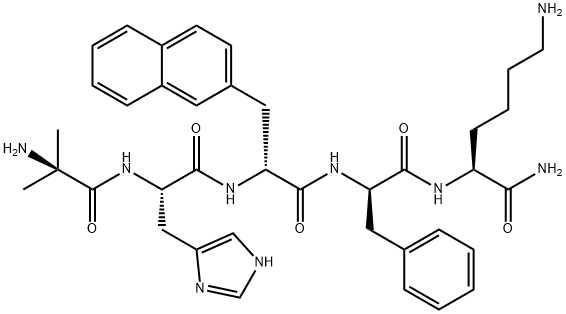
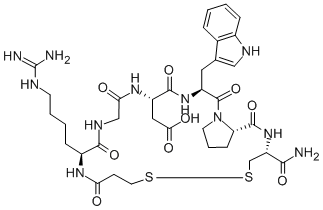
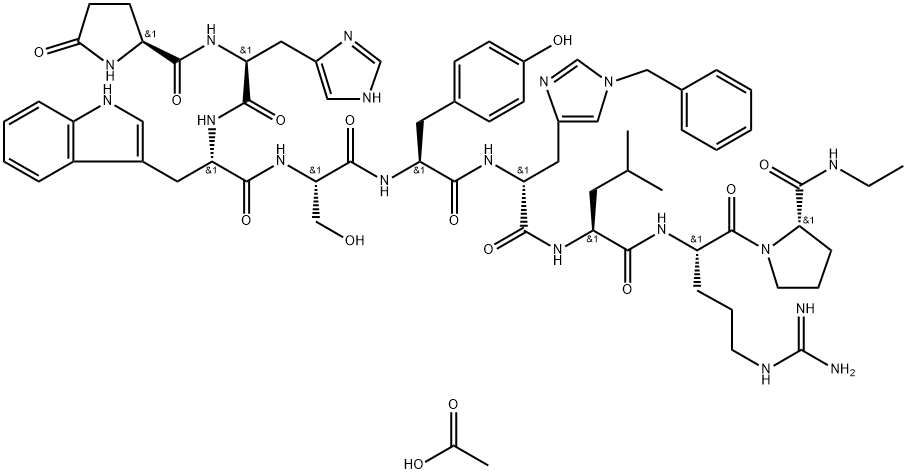
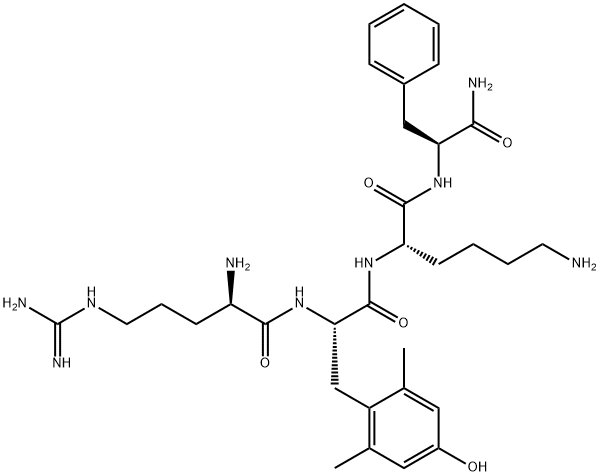
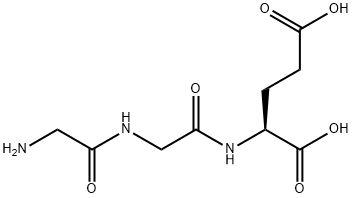


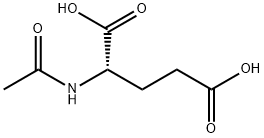
You may like
-
 Delta Sleep Inducing Peptide CAS 62568-57-4View Details
Delta Sleep Inducing Peptide CAS 62568-57-4View Details
62568-57-4 -
 1975-50-4 98%View Details
1975-50-4 98%View Details
1975-50-4 -
 2-HYDROXY BENZYL ALCOHOL 98%View Details
2-HYDROXY BENZYL ALCOHOL 98%View Details
90-01-7 -
 2-Chloro-1,3-Bis(Dimethylamino)Trimethinium Hexafluorophosphate 221615-75-4 98%View Details
2-Chloro-1,3-Bis(Dimethylamino)Trimethinium Hexafluorophosphate 221615-75-4 98%View Details
221615-75-4 -
 61397-56-6 CIS BROMO BENZOATE 98%View Details
61397-56-6 CIS BROMO BENZOATE 98%View Details
61397-56-6 -
 14714-50-2 (2-Hydroxyphenyl)acetonitrile 98+View Details
14714-50-2 (2-Hydroxyphenyl)acetonitrile 98+View Details
14714-50-2 -
 118753-70-1 98+View Details
118753-70-1 98+View Details
118753-70-1 -
 733039-20-8 5-broMo-2-chloro-N-cyclopentylpyriMidin-4-aMine 98+View Details
733039-20-8 5-broMo-2-chloro-N-cyclopentylpyriMidin-4-aMine 98+View Details
733039-20-8